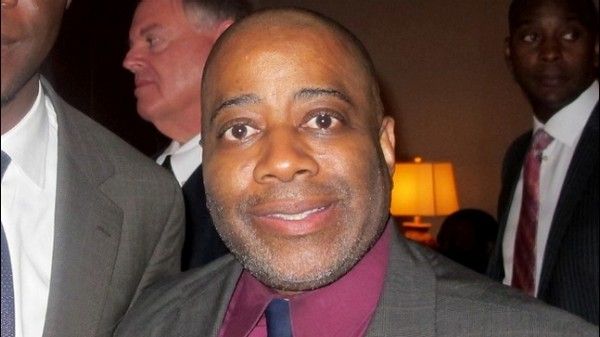
By Raynard Jackson (NNPA Newswire Columnist)
During the holidays, I had several frantic conversations with diplomats from Africa and the Caribbean. They all knew that I was active in the Republican Party and was a vocal supporter of Donald Trump’s presidential campaign; so they were all nervously inquiring about my thoughts on Trump’s prospective policy views on their part of the world.
As a result of these conversations, I am committing to writing more about foreign policy in my columns for 2017. Don’t worry, you will still get your regular dose of the issues you have come to expect me to write about, but I must expand my subject matter for you, the readers.
I have been extremely critical of African, and to a lesser extent, Caribbean heads of state and diplomats in past columns. I will get to that point in a moment.
When you think of Michael Jordan, you think of basketball; when you think of the Pope, you think of religion; when you think of Michael Jackson, you think of “Thriller;” when you think of the continent of Africa, you think of corruption, famine, and disease; when you think of the Caribbean, you think of beaches, vacation, tourism and, of course, drugs.
Therein lies the problem with Africa and the Caribbean: they have a branding and a perception problem.
Most Americans are totally oblivious to the fact that Africa is the fastest growing continent in the world, according to the African Development Bank Group. This presents great opportunities for American investment, but Americans can’t get beyond the mental images of corruption, famine, and disease they have in their minds about Africa, mostly from American media, edited down to 30 second sound bytes on television.
Most Americans still regard many Caribbean nations as banana republics, despite the fact that U.S. trade to the region is greater than to China and the European Union combined.
Despite having various trade agreements with the U.S., both Africa and the Caribbean are mostly known within diplomatic circles for their work in the areas of the war on terror and drug interdiction. No one views them as “legitimate” trading partners.
Let’s be honest, America could live with or without both Africa and the Caribbean. Their real strategic value is vis-à-vis China, because China is literally throwing money indiscriminately to these two groups of countries, it is a major U.S. national security issue that most American politicians are totally ignoring.
The Obama administration has been a total disaster for Africa and the Caribbean. They have allowed China to buy most of Africa’s strategic natural resources, like cobalt, uranium, copper, bauxite and petroleum just to name a few.
China has been quietly financing various infrastructure projects in the Caribbean for decades and bringing in their own Chinese workers at the expense of hiring host country citizens.
Without Africa, there would be no computers, cell phones, or most of our other high-end electronics. Without cocoa from Cote d’Ivoire in West Africa, Americans would have no chocolate to eat.
Americans would be stunned to know how much of their daily lives have some nexus point to Africa, by way of China.
So, with all this economic potential yet to be realized, why is Africa and the Caribbean still viewed so negatively?
I put the blame for this negative “perception” issue squarely on both of their political and business leadership. Both groups of countries have a positive story to tell, but they are absolutely horrible at understanding how to effectively communicate their story to the American people.
Their diplomats rarely, if ever, engage with the American media to tell their own stories or engage with the American people to cultivate strategic relationships; and they almost never engage with Blacks in the U.S.
In the rare instances of engagement with Americans, it’s almost always with white media and white audiences. I have no recollection of either group of countries engaging with the Black business community or Black media in any sustained, meaningful way.
If these countries don’t tell their own stories, do they really think they can count on the likes of CNN to fairly tell their stories?
When their heads of state and various ministers come to the U.S., you will rarely, if ever, find any engagement with anyone from the Black community; no media, no businessmen, no universities, no NGOs.
It’s not an either or proposition, but rather a “both” “and”. They can still meet with all the typical White groups — the U.S. Chamber of Commerce, the Organization of American States, etc., but do Blacks really need to beg them for a little constructive engagement?
The mere fact that they have no connection or inroads to the incoming Trump administration is a damning indictment of their country’s lack of political sophistication. I guess they, like most, put all their eggs in the Hillary Clinton “basket of deplorables.”
Africa and the Caribbean have EVERYTHING they need to be self-sufficient; they only need “strategic partnerships,” with the likes of the U.S., not donor nation relationships. But for this to happen, Africa and the Caribbean must become more sophisticated in how they deal with global powers.
Just as Donald Trump has totally disrupted the normal approach to U.S. presidential politics, Africa and the Caribbean must totally disrupt their sophomoric approach to engagement with the U.S. and its people.
Raynard Jackson is founder and chairman of Black Americans for a Better Future (BAFBF), a federally registered 527 Super PAC established to get more Blacks involved in the Republican Party. BAFBF focuses on the Black entrepreneur. For more information about BAFBF, visit www.bafbf.org. You can follow Raynard on Twitter @Raynard1223.



